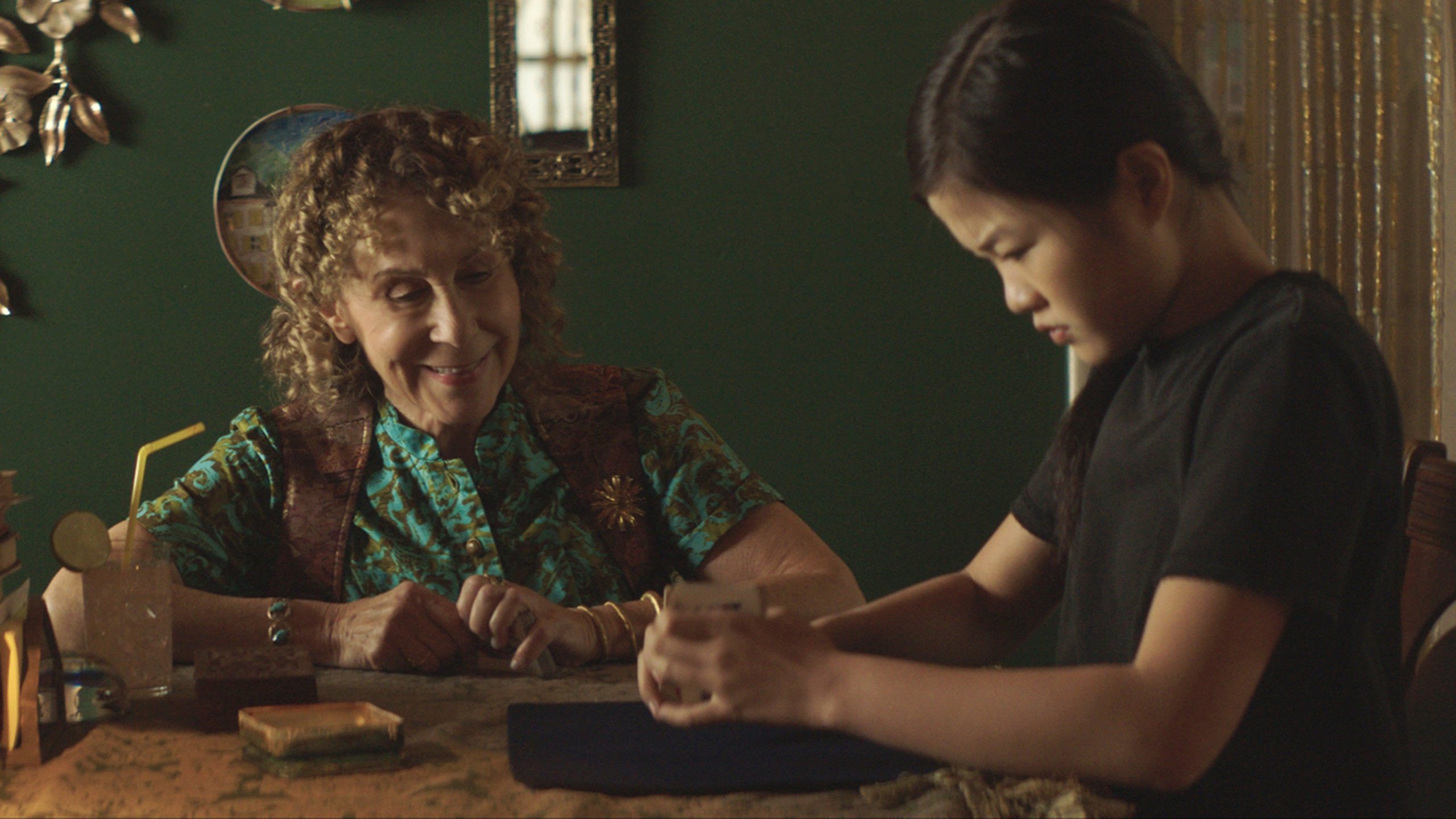One of the most important narratives to come out last year was The Fallout which dealt with the process of grieving for a teenage girl in the aftermath of a social tragedy. In addition to her comprehending the flux of her pain, it also navigated through her sexuality, relationships, and aspirations. Marvelous and the Black Hole, in its structure, explores a similar character in the wake of a personal tragedy. It is about Sammy, played by Miya Cech, a young girl who is recovering from the loss of her mother, striving through the conflicting relationship with her father and socially imposed ambitions as well as routine.
The most important facet of this film is how it hints at the incapacitating ability of unprocessed grief to affect daily functioning, emotions, and state of being derived from the mood. Sammy is like any other child, only burdened by her trauma. Expecting her to accommodate everyone’s grieving process around her is an unrealistic demand. This is not to say that others around her have managed to process their loss and now they have the window for our protagonist. The situation is tricky. The complexity is further aggravated by the conflicting generations of the father and the daughter, both of whom have had exposure to different cultures altogether. Despite the inherent complexity of the narrative that warrants the evocation of a passionate drama, Kate Tsang adopts a quirky tone for her screenplay. It brings me to think if the director finds a reflection of themselves in their protagonist and therefore, attempts to sketch the world as can be viewed from her eyes.
Related to Marvelous and the Black Hole – Unplugging [2022] Review: A Relatable Comedy about Digital Detox that Shines Through All Odds
The quirky tone compromises character building by rendering a unidimensionality to all people involved. The protagonist’s angst doesn’t get translated onscreen to be viewed separately from annoyance. She lacks non-verbal nuance which prevents an absolute attachment with her coming of age. The other character to have this nuance in the same film would be Margot played by Rhea Perlman with whom Sammy strikes an unlikely friendship/menteeship. However, this is a story in which every character is a vessel for Sammy’s journey from despair to hope.
Marvelous and the Black Hole incorporates doodle aesthetics for humor. I personally couldn’t enjoy it as, in its attempts to visualize certain emotions, actions, and events, it ended up being reductive to the element in consideration. A parabole can be found in the 2021 animated feature The Mitchells vs. the Machines but given how heightened all characters and their expressions are in the film by the virtue of animation, the aesthetic choice only becomes complementary. It could also be me speaking, for I have not been a fan of mixed media i.e. live-action with animation together. Much like oil and water-based paints are insoluble to be used efficiently on the same canvas, live-action and animation can never be inextricable in a frame. The coarse visual appeal only takes a toll on the overall enjoyment.
In the pre-climactic sequence during which Sammy acts in an insolent manner out of her frustration considering the recent developments, she is told by a friend of Margot about the tragedy she has been through and how it has been channelized into a creative pursuit that heals her along with others, Sammy is found to realize the self-centered character of her behavior. Therefore, she is inspired to recreate the story that her mother recorded for her before dying. In the process, she embraces the loss in a way that doesn’t abandon her present reality.
Also, Read – The Lost City [2022] Review – Sandra Bullock & Channing Tatum cannot save this stale, humorless romp
While the associated sentimentality of this narrative progression appears harmless, I found this process of enlightenment patronizing to the individuality of Sammy and everyone in the audience like her. It inadvertently implies the superiority of one process of grieving over other and homogenizes Sammy’s trauma response as rudeness. Some writing choices could have prevented this type of conclusion to an honestly personal film.
Marvelous and the Black Hole is an attempt at filming a personal account, or at least it appears to be one. Kate Tsang has the instinct of a storyteller but the film is rough at this stage. One can only hope that a sophomore feature will have a different visual identity than this, in our favor.
Trailer
Marvelous and the Black Hole Movie Links – IMDb, Rotten Tomatoes
Marvelous and the Black Hole Movie Cast – Miya Cech, Rhea Perlman, Leonardo Nam, Kannon, Paulina Lule, Lauren Knutti




![Missing Johnny [2018]: ‘NYAFF’ Review](https://79468c92.delivery.rocketcdn.me/wp-content/uploads/2018/06/MISSING_JOHNNY_NYAFF_HOF_3-768x512.jpg)

![Death Of Insane (Unmadiyude Maranam) [2019]: ‘HFF’ Review – An abstract satire on Moral Policing and Censored Art](https://79468c92.delivery.rocketcdn.me/wp-content/uploads/2019/05/Death-Of-Insane-Unmadiyude-Maranam1-768x512.jpg)
![Riverdance: The Animated Adventure [2022] Review – A Forgettable Movie About Death, Tap Dance And Magical Elks](https://79468c92.delivery.rocketcdn.me/wp-content/uploads/2022/01/Riverdance-The-Animated-Adventure-3-768x432.jpg)
![Profile [2021] Review: An Interesting, Though Clichéd, Hypermediated Experiment](https://79468c92.delivery.rocketcdn.me/wp-content/uploads/2021/08/Profile-Movie-2-768x432.jpg)
![Red Beard [1965] Review: End Of A Glorious Era](https://79468c92.delivery.rocketcdn.me/wp-content/uploads/2020/06/red-beard-cover-2-768x432.jpg)